 Petzlover
Petzlover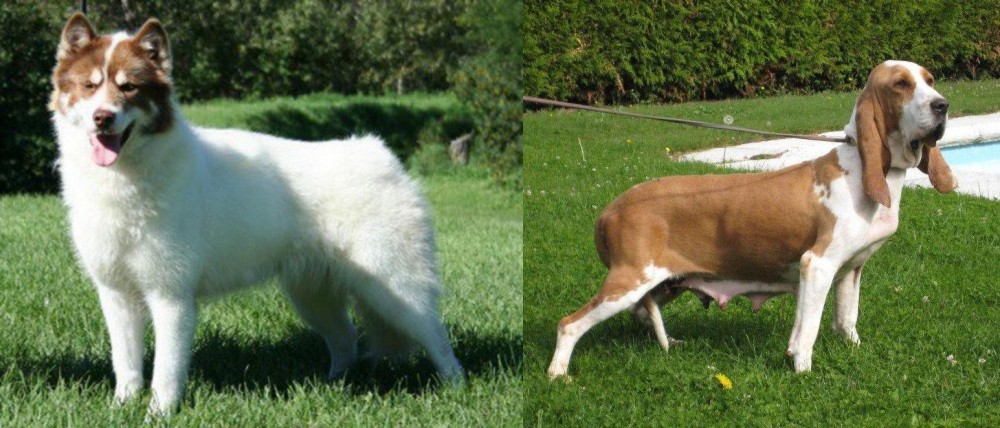 Canadian Eskimo Dog is originated from Canada but Sabueso Espanol is originated from Spain. Canadian Eskimo Dog may grow 15 cm / 6 inches higher than Sabueso Espanol. Canadian Eskimo Dog may weigh 15 kg / 34 pounds more than Sabueso Espanol. Canadian Eskimo Dog may live 3 years more than Sabueso Espanol. Both Canadian Eskimo Dog and Sabueso Espanol has almost same litter size. Canadian Eskimo Dog requires Moderate Maintenance. But Sabueso Espanol requires Low Maintenance
Canadian Eskimo Dog is originated from Canada but Sabueso Espanol is originated from Spain. Canadian Eskimo Dog may grow 15 cm / 6 inches higher than Sabueso Espanol. Canadian Eskimo Dog may weigh 15 kg / 34 pounds more than Sabueso Espanol. Canadian Eskimo Dog may live 3 years more than Sabueso Espanol. Both Canadian Eskimo Dog and Sabueso Espanol has almost same litter size. Canadian Eskimo Dog requires Moderate Maintenance. But Sabueso Espanol requires Low Maintenance
 The Canadian Eskimo Dog dates way back to more than 4,000 years ago. This Arctic breed of dog was developed to pull sleds, and wasn’t considered as a pet but as a working dog – an important means to an end – a tool for use.
The Canadian Eskimo Dog dates way back to more than 4,000 years ago. This Arctic breed of dog was developed to pull sleds, and wasn’t considered as a pet but as a working dog – an important means to an end – a tool for use.
By the 1960s the dog breed had declined to such an extent that they were removed from UKC and AKC registries. It is believed that the breed would have in all likelihood become extinct if it weren’t for the efforts of Brian Ladoon, William Carpenter and John McGrath who formed the Eskimo Dog Research Foundation in 1972.
After breeding for 30 years, the dog has the biggest genetic stock colony of Canadian Eskimo Dogs and in May 2000, Nunavut, a Canadian territory, adopted the dog as the animal symbol for this region.
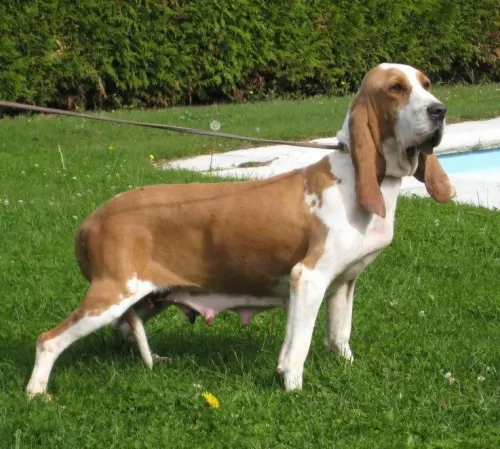 The Sabueso Español is a Spanish Scenthound, hailing from the Iberian Peninsula, Spain. Beyond Spanish borders, this dog is virtually unknown.
The Sabueso Español is a Spanish Scenthound, hailing from the Iberian Peninsula, Spain. Beyond Spanish borders, this dog is virtually unknown.
There isn’t much on its origins but it is believed that it may have developed from the bloodhound. The dog has been used for hundreds of years to hunt down wild boar, deer and all kinds of game. To this day it is essentially a hunting dog and not particularly used as a pet.
When he is on the hunt, he uses his baying bark to communicate with the pack. The dog is recognised by the UKC under the category ‘Scent Hound’.
 The Canadian Eskimo Dog is a well-built, medium- to large sized dog looking much like a husky. The male Eskimo dog is somewhat bigger than the female, standing 58 – 70cm at the shoulder and weighing 30 - 40kg.
The Canadian Eskimo Dog is a well-built, medium- to large sized dog looking much like a husky. The male Eskimo dog is somewhat bigger than the female, standing 58 – 70cm at the shoulder and weighing 30 - 40kg.
The male often has some thick fur around the neck, giving him the appearance of looking larger than he actually is. He is slightly larger than the female. Other people say he has a similar appearance to a wolf.
He has a thick double coat which can be white, gray, fawn or even black and white. He has short, erect ears, dark brown eyes and a bushy, feathered tail which curls over the back. Sometimes you find blue eyes with the Canadian Eskimo Dog, and its only when you want to show him, that this isn’t acceptable.
The Canadian Eskimo Dog's temperament is hard working, tough, brave, alert and intelligent. When he is trained and socialized, which will be important for this breed, he becomes gentle and loving, forming a strong bond with his owner. He’ll also get along well with children in the home as well as other pets.
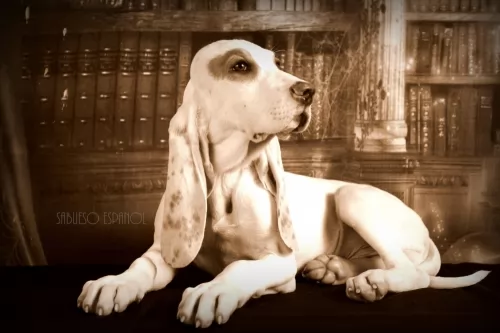 Known also as the Spanish Hound, this medium-sized dog stands at between 47 and 58cm in height ad weighs 23 to 25kg.
Known also as the Spanish Hound, this medium-sized dog stands at between 47 and 58cm in height ad weighs 23 to 25kg.
The dog has very long ears, the eyes are amber colored and the long tail is thin ad whip-like. The coat is short and smooth and is mostly white with orangey, lemon or reddish brown patches.
People think that because these dogs are such excellent hunting dogs, they can't be a good pet, but they are calm and loving, making an excellent companion dog.
He is also good with children in the home. He will just need to be trained and socialized if you want him to be well mannered and obedient as he is independent and can be stubborn.
 The Canadian Eskimo Dog is a dog which is responsive to training. With training and socialization, as a highly intelligent, strong-will dog he will need to be supervised by a firm, authoritative figure.
The Canadian Eskimo Dog is a dog which is responsive to training. With training and socialization, as a highly intelligent, strong-will dog he will need to be supervised by a firm, authoritative figure.
He makes such an awesome pet when properly trained, and if you’re a responsible dog owner who knows how to care for- and exercise your pet appropriately, you’ll be rewarded by having a strong, loving companion at your side.
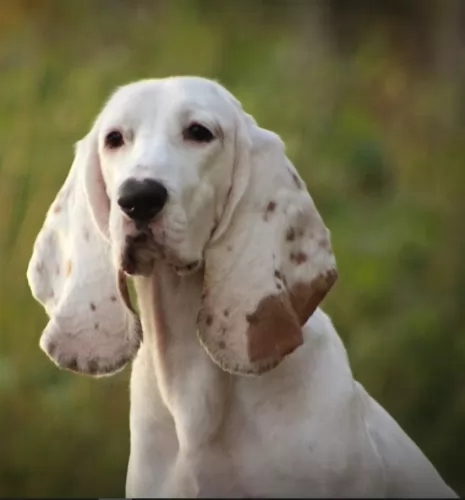 The attractive Sabueso Español is a calm, amicable, sweet dog that is loving towards his human owners. He is good with children but would prefer older children who know how to be kind and gentle towards him.
The attractive Sabueso Español is a calm, amicable, sweet dog that is loving towards his human owners. He is good with children but would prefer older children who know how to be kind and gentle towards him.
He isn’t aggressive and will get on well with other dogs in the house too. He is essentially an outdoor dog and will love nothing more than to have his family involved with him with activities outside.
If you’re looking for a great pet and companion for home and outdoor life, this dog is a superb choice.
 The Canadian Eskimo Dog is a generally healthy breed who has a life expectancy of between 10 and 15 years when he is lovingly cared for and provided with a top quality diet. Ensure that he has a top quality diet with plenty of raw meat geared towards his age and energy levels.
The Canadian Eskimo Dog is a generally healthy breed who has a life expectancy of between 10 and 15 years when he is lovingly cared for and provided with a top quality diet. Ensure that he has a top quality diet with plenty of raw meat geared towards his age and energy levels.
The Canadian Eskimo Dog suffers from common health issues that most dogs are at risk for, and typically this will include hip dysplasia and eye disease. If your dog develops a disease such as hip dysplasia, speak to your vet immediately.
 The Sabueso can live to be 12 years of age, but it is still good to be aware of typical dog illnesses that he can succumb to.
The Sabueso can live to be 12 years of age, but it is still good to be aware of typical dog illnesses that he can succumb to.
Hound dogs with floppy ears are known for getting ear infections. This is because floppy eared dogs don’t get the right amount of air circulation, and excess wax, dirt and moisture cause problems within the ear.
Excess body fat with a dog can create problems for your dog. Obesity is common in all dogs and dogs of all ages. Dogs that are obese don’t want to exercise. Obesity can cause a host of problems with your dog and even reduce his lifespan.
 The Canadian Eskimo Dog has always been a working dog, used to being driven hard to perform, and to this day he likes to work hard and have his day filled with activities.
The Canadian Eskimo Dog has always been a working dog, used to being driven hard to perform, and to this day he likes to work hard and have his day filled with activities.
His exercise requirements are high and this is one breed that you’re going to have to exercise regularly – long walks, running on a leash as you cycle, ball games, swimming, hiking. It is why the dog is best suited for life in the country as opposed to small properties in the city. If exercise seems like a lot of hard work for you, don’t buy such a breed as it will be cruel and irresponsible to leave him day after day in your back yard. He becomes bored, frustrated, unhappy and destructive.
The dog is an average shedder and his coat is short and dense. There’s not a whole lot of maintenance to worry about with this good-looking dog and he will basically require having a good brush twice a week.
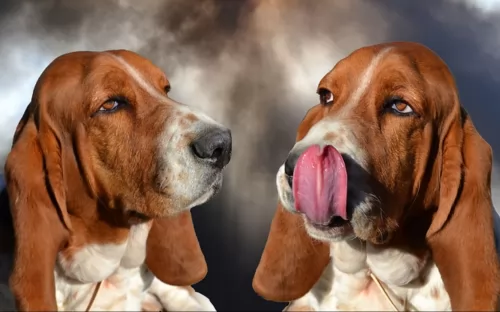 The short coat of the Sabueso Español makes him a low maintenance dog. and a brush twice a week is enough to keep his coat in tip top condition. As you brush him, make sure to check for any odd, new lumps you come across.
The short coat of the Sabueso Español makes him a low maintenance dog. and a brush twice a week is enough to keep his coat in tip top condition. As you brush him, make sure to check for any odd, new lumps you come across.
Check inside his ears, take a look at his eyes and make sure they’re bright and clear.
Look inside his mouth. He has no way of telling you if he has a rotten tooth causing him pain, and he relies on you to check on this for him.
Provide him with a dry, warm, comfortable bed.
These dogs are known for their stamina and energy and will ideally suit a home on a large property and not a small property in the city. They need lots of open spaces and plenty of exercise. They love long walks, preferably vigorous hikes, swimming and ball and rope games.
Ensure he is neutered or spayed if you want to avoid puppies.
Make sure his vaccinations are up to date to prevent deadly canine diseases.
Your Sabueso Espanol needs a nutritious diet if he is to remain healthy and happy. Commercially manufactured dog foods can be a good choice if you go for the high quality ones packed with vitamins and minerals. They can be convenient and well balanced. To provide your dog with some variety, provide him with some home-made food added into the dry kibble from time to time. No need to make home-made food all complicated and involved. Simply boil chicken, brown rice, sweet potatoes, carrots and spinach together, chopping it all up, and adding little bits of this to your dog's dry kibble twice a week. This will keep him happy and healthy. Try to include a bit of raw meat occasionally and never let your dog be without a constant source of fresh, cool water.